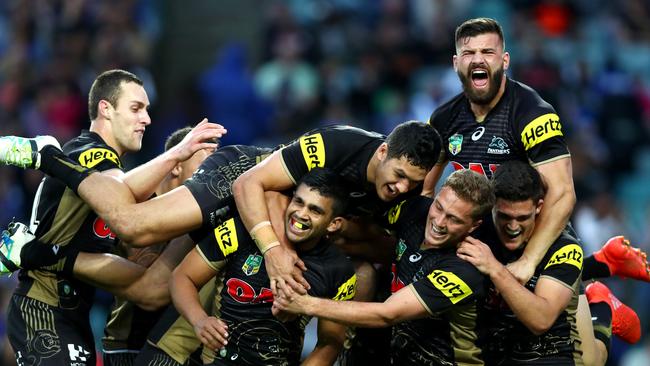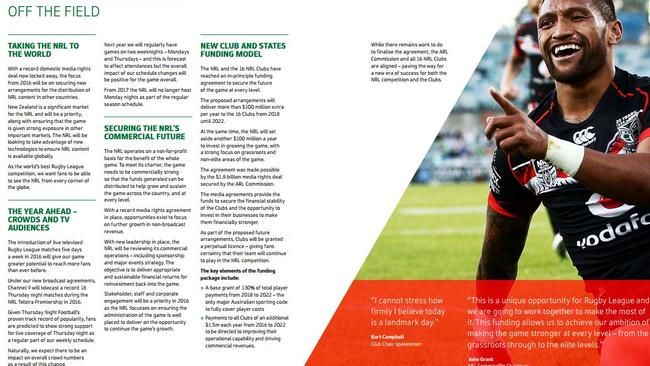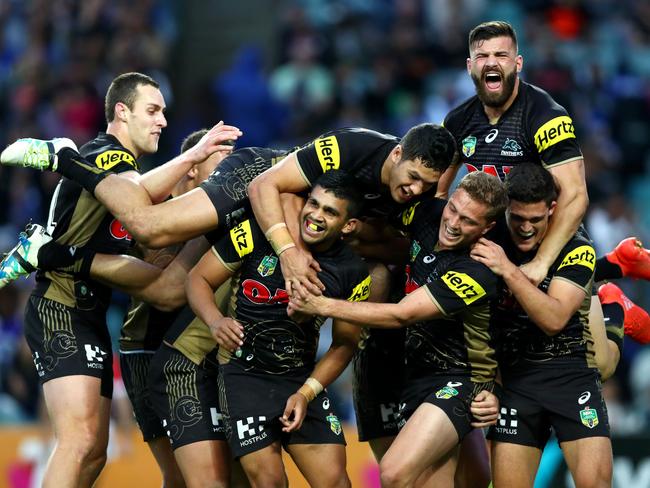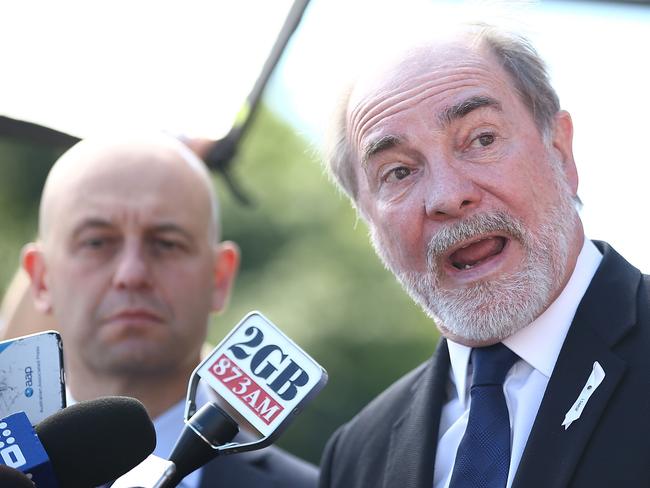NRL clubs considering legal action against their own governing body over funding fiasco
IN an unprecedented move, all 16 NRL clubs are considering legal action against their own governing body over the $1.8 billion funding fiasco.

NRL
Don't miss out on the headlines from NRL. Followed categories will be added to My News.
IN an unprecedented move, the 16 NRL clubs are considering legal action against their own governing body over the $1.8 billion funding fiasco.
The Daily Telegraph can reveal club chairmen discussed taking the extraordinary steps of suing the NRL in a weekend phone hook-up.
The move follows confirmation the agreement with the clubs to pay them 30 per cent over the salary cap was contained in NRL’s 2015 annual report lodged with the Australian Securities and Investments Commission.
Under the heading, the key elements of the funding package include, it reads:
“A base grant of 130 per cent of total player payments from 2018 to 2022 — the only major Australian sporting code to fully cover payer costs.”

And chairman John Grant is quoted as saying: “This is a unique opportunity for rugby league and we are going to work together to make the most of it. This funding allows us to achieve our ambition of making the game stronger at every level — from the grassroots through to the elite levels.”
The NRL has since backflipped on the formal ASIC document and wants to redirect the money away from the original share model.
In what would be the game’s blackest day since Super League, the club chairmen and women spoke of potential legal action in their latest phone hook up on Sunday.
“We are certainly considering it, yes,” said one prominent club chairman. “Our legal advice is that would win the case.”
Melbourne chairman and spokesman for the clubs, Bart Campbell, wasn’t shying away from future action.

“In a pure business context, if you tried to walk out of a position that was that far advanced where you have a signed MOU (memorandum of understanding) and you’ve announced to the world, you would be very, very, very clearly held accountable in a legal context for your actions,” Campbell said.
“You can’t just walk away at that point in time. Eighteen months of agreement, you just can’t walk out of it at the final minute. We want them to honour the commitment they made. The commitment they signed up to and the commitment that they announced.
“Just because they have had a change of heart about how they want to spend the money, doesn’t mean that the only source of where that money comes from is the clubs.
“The clubs have acted in reliance on the MOU being put into place and have made business decisions in good faith and made on the assumption that the MOU, which was agreed, signed and announced, would be in place. Just to be clear, no-one from club land wants to run the game.”

Another chairman took a hefty swipe at the commission, claiming members “sit in their little glass buildings and turn up with absolutely no idea of what is happening in the real world. They can’t be so far divorced from the reality of club land and state land.”
The clubs are pushing ahead for an extraordinary general meeting to remove Grant.
“This is a process that has been going 18 months — it is fully negotiated and that the basis of the numbers are their (the NRL) own model,” Campbell said. “Their own numbers, were reviewed by Ernst and Young, their auditors.”
On a revamped commission, clubs want five independent commissioners along with two representatives from the clubs and one from the state bodies.
“The clubs aren’t trying to take control — they have no desire to do so,” Campbell said.


